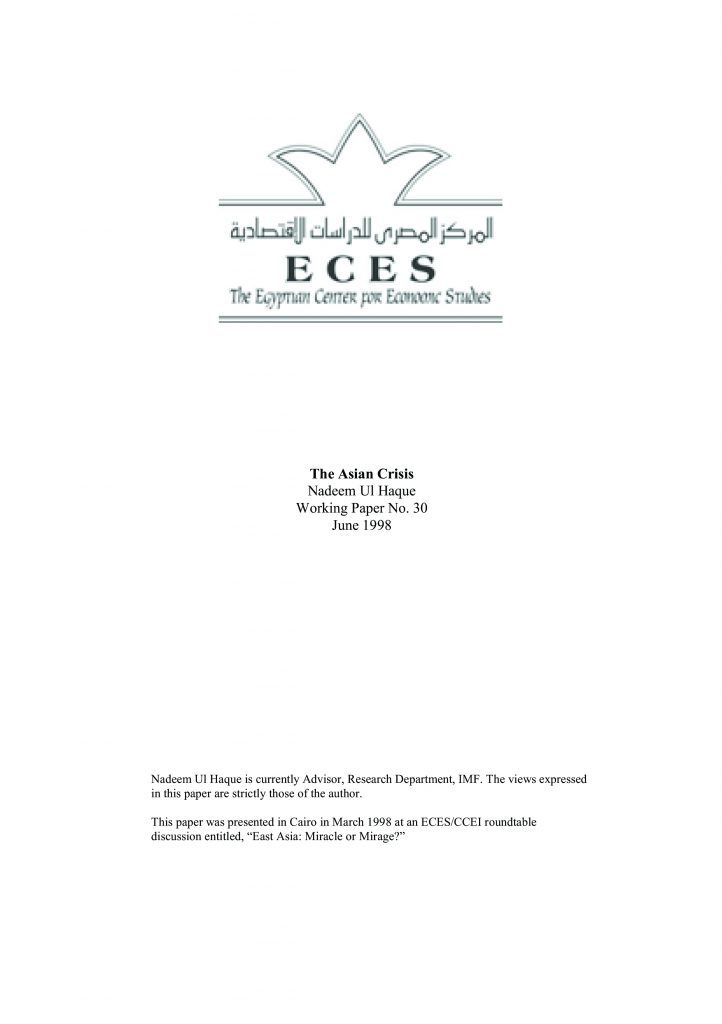Abstract:
Over a decade and half, the East Asian economies have experienced rapid economic growth. Nevertheless, such rapid growth and boom conditions masked economic weaknesses which remained hidden so long as the boom continued. With the external environment becoming less favorable, the competitiveness of those economies started to erode which resulted into the evolution of the economic crisis at the beginning of 1997. This crisis situation raised criticism of the ways in which international financial institutions – including the International Monetary Fund (IMF) – do business, and thus calls for changing such ways emerged.
This paper reviews the background to the crisis; the factors that may have contributed to it; the economic policies implemented by the three main crisis countries – Korea, Thailand and Indonesia – in the context of IMF-supported economic programs. In addition, some tentative conjectures about the implications of the crisis and the role of the Fund are sketched along with some preliminary thoughts on the ‘miracle’.

